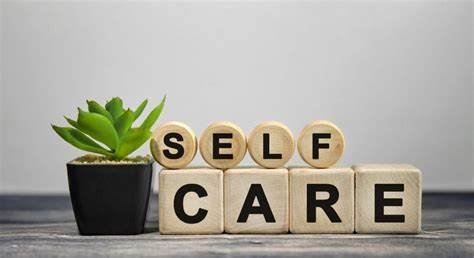Self-Care in Achieving Personal Wellness
Self-care is an essential practice for maintaining personal wellness. It involves intentionally taking time to nurture and prioritize your physical, mental, and emotional well-being. In today’s fast-paced world, it’s easy to overlook self-care, but making it a part of your daily routine can have profound effects on your overall health and happiness. In this article, we’ll explore the role of self-care in achieving personal wellness and how you can incorporate it into your lifestyle.
1. Understanding Self-Care and Wellness
Self-care refers to activities and practices that you engage in to maintain and improve your well-being. It’s not just about indulgence; it’s about taking proactive steps to care for yourself so that you can feel your best and function optimally in all areas of your life. Wellness, on the other hand, is a holistic concept that encompasses physical, mental, and emotional health. Self-care is a key component of wellness, as it helps you manage stress, stay physically healthy, and maintain emotional balance.
How Self-Care Contributes to Wellness:
- Physical Health: Self-care practices like exercise, sleep, and proper nutrition promote physical well-being by keeping your body in good condition.
- Mental Health: Practices like mindfulness, relaxation techniques, and time for hobbies reduce stress, anxiety, and improve cognitive function.
- Emotional Health: Engaging in self-compassion, positive self-talk, and spending time with loved ones nurtures emotional stability and resilience.
2. The Physical Benefits of Self-Care
A significant part of self-care involves taking care of your body. When you engage in physical self-care, you improve your overall health and energy levels, which can positively impact your day-to-day life. By prioritizing physical well-being, you not only improve your fitness but also boost your immune system and prevent chronic health issues.
Key Practices for Physical Self-Care:
- Exercise: Regular physical activity is one of the most important forms of self-care. It improves cardiovascular health, strengthens muscles, reduces stress, and boosts mood through the release of endorphins.
- Nutrition: Eating a balanced diet full of vitamins, minerals, and nutrients helps keep your body healthy and energized. Proper nutrition supports the immune system, aids in recovery, and enhances mental clarity.
- Sleep: Getting adequate, quality sleep is crucial for physical recovery, cognitive function, and emotional stability. Sleep helps regulate hormones, boost memory, and reduce inflammation.
- Hydration: Drinking enough water keeps your body hydrated, supports digestion, improves skin health, and helps regulate body temperature.
3. The Mental Health Benefits of Self-Care
Self-care plays a vital role in maintaining and improving mental health. It allows you to recharge and prevent burnout, enhances focus, and reduces anxiety or negative thinking patterns. Prioritizing mental well-being can lead to greater emotional balance, clarity, and resilience in facing daily challenges.
Key Practices for Mental Health Self-Care:
- Mindfulness and Meditation: These practices help you stay present and calm, reduce stress, and improve emotional regulation. Regular mindfulness has been shown to reduce symptoms of anxiety, depression, and even physical pain.
- Journaling: Writing down your thoughts and emotions can help you process them, identify patterns, and gain perspective. It’s a great way to release bottled-up feelings and clear your mind.
- Breaks and Downtime: Taking breaks during the day or scheduling “me-time” for relaxation helps manage stress and prevent mental exhaustion. These moments allow you to reset and regain focus.
- Therapy or Counseling: Seeking professional support from a therapist or counselor can be a crucial aspect of self-care. Talking about your feelings, challenges, and goals can provide clarity and emotional relief.
4. The Emotional Benefits of Self-Care
Emotional well-being is often overlooked, but it is just as important as physical and mental health. Self-care helps you manage emotions, build resilience, and foster a positive self-image. When you take care of your emotional health, you’re better equipped to cope with life’s challenges and maintain positive relationships.
Key Practices for Emotional Self-Care:
- Self-Compassion: Be kind to yourself. Practice treating yourself with the same care and understanding that you would offer a friend. Self-compassion can help reduce feelings of guilt, shame, and frustration.
- Healthy Boundaries: Setting clear boundaries with others ensures that you’re not overextending yourself, protecting your emotional energy, and prioritizing your own needs.
- Positive Social Connections: Building and maintaining supportive relationships with friends, family, and colleagues provides emotional support, reduces loneliness, and boosts self-esteem.
- Engagement in Hobbies: Taking time to do what you love, whether it’s painting, reading, or gardening, can boost your mood and provide a sense of fulfillment.

5. How to Incorporate Self-Care into Your Daily Life
Incorporating self-care into your routine doesn’t have to be overwhelming. The key is consistency and finding what works best for you. Start small and gradually build a routine that supports your overall wellness goals.
Steps to Implement Self-Care:
- Prioritize Yourself: Recognize the importance of self-care and make it a non-negotiable part of your routine. Schedule it in, just like any other important task.
- Create a Balanced Routine: Incorporate physical, mental, and emotional self-care practices into your daily life. Aim for a mix of activities that nourish all aspects of your wellness.
- Set Boundaries: Don’t be afraid to say no to things that drain your energy or cause unnecessary stress. Protect your time and well-being.
- Start Small: Begin with simple practices such as drinking more water, getting enough sleep, or taking a 10-minute break each day to meditate. Gradually increase your self-care activities as you see fit.
- Reflect and Adjust: Periodically assess how your self-care practices are impacting your wellness. Make adjustments based on your needs and goals.
Conclusion
Self-care is an essential practice for achieving personal wellness. By focusing on physical, mental, and emotional health, you can create a balanced and fulfilling life. Remember that self-care is not a one-time event, but an ongoing practice that requires attention, patience, and dedication. Prioritize yourself, and make self-care a non-negotiable part of your daily routine. By doing so, you’ll enhance your overall well-being and live a more balanced and joyful life.



